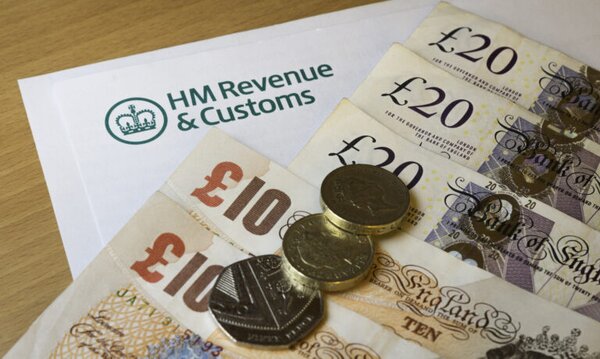
HM Revenue & Customs (HMRC) is preparing to contact thousands of taxpayers this spring as part of a new initiative aimed at tackling pension tax relief errors. In particular, the focus will be on higher and additional rate taxpayers who may have unintentionally missed out on claiming full relief for their pension contributions. Some could also have encountered mistakes relating to salary sacrifice arrangements.
The move is expected to mirror HMRC’s broader "nudge letter" campaigns seen in previous years, where letters are sent encouraging taxpayers to review and correct their filings voluntarily. Experts warn that even unintentional mistakes could result in significant financial penalties if not promptly addressed. The campaign reflects HMRC’s growing reliance on data-led compliance strategies, using information from pension providers, employers, and banks to spot discrepancies.
With tax efficiency and retirement planning becoming increasingly vital in today’s uncertain economic landscape, understanding how pension contributions are treated for tax purposes is more critical than ever. Here’s what you need to know about HMRC’s latest compliance crackdown, who is affected, and what you should do next.
HMRC's Focus: Missed Pension Relief Claims
One major area under HMRC’s spotlight involves higher and additional rate taxpayers who contribute to personal pensions but fail to claim the extra tax relief they are entitled to.
Typically, pension providers automatically claim 20% tax relief on contributions under the "relief at source" system. However, individuals who pay income tax at 40% or 45% must manually claim the remaining relief via their Self Assessment tax return. HMRC believes thousands have neglected this step, resulting in lost tax savings.
Tax experts have long criticised the complexity surrounding pension relief claims, suggesting that the system’s reliance on individuals to self-claim creates unnecessary confusion. In light of this, HMRC is encouraging those affected to review previous years’ returns and make corrections if needed.
Salary Sacrifice Errors Also Under Review
In addition to pension relief, salary sacrifice arrangements are facing renewed scrutiny. Under salary sacrifice schemes, employees agree to exchange part of their salary for non-cash benefits such as pension contributions, which can reduce taxable income and National Insurance contributions.
However, errors often arise when schemes are not implemented correctly, particularly if the arrangements were not formally varied in writing before salary was given up. Where mistakes are found, HMRC may disallow the tax and National Insurance savings, resulting in unexpected tax bills for affected employees.
According to tax specialists, salary sacrifice errors are surprisingly common, particularly among smaller employers who may lack the resources to administer schemes correctly.
What Are HMRC’s Nudge Letters?
Nudge letters have become a key weapon in HMRC’s compliance arsenal. Rather than opening a formal tax investigation immediately, HMRC sends letters urging taxpayers to check specific areas of their tax returns and correct any mistakes voluntarily.
The advantage for HMRC is that it saves resources while encouraging self-correction. For taxpayers, responding to a nudge letter can often avoid harsher penalties that might be applied during a full investigation.
In this latest campaign, HMRC’s nudge letters will likely remind individuals to check their pension contributions and salary sacrifice arrangements carefully, stressing the potential consequences of non-compliance.

How Big Is the Problem?
While HMRC has not released exact figures, industry estimates suggest that thousands of taxpayers could be affected. Research by Quilter found that one in five higher rate taxpayers are at risk of missing out on full pension relief, potentially losing out on hundreds or even thousands of pounds per year.
Moreover, compliance errors in salary sacrifice schemes are believed to cost the Exchequer millions annually, prompting HMRC to sharpen its focus on this area.
Given the scale of the problem, tax experts are urging all pension contributors and employees in salary sacrifice arrangements to check their records especially before the 31 January 2026 Self Assessment deadline.
Expert Advice: What Taxpayers Should Do
Leading financial advisers suggest several immediate actions for those who could be affected. First, taxpayers should review past pension contributions to ensure they have claimed the correct amount of tax relief.
Second, anyone participating in a salary sacrifice scheme should confirm that the arrangement was properly documented and implemented before any salary was forgone. If discrepancies are found, it may be possible to amend previous tax returns or take corrective steps with HMRC’s guidance.
Speaking on the issue, Rachael Griffin, tax and financial planning expert at Quilter, said: "Given the complexity surrounding pensions and salary sacrifice, it’s hardly surprising that mistakes are made. However, with HMRC’s new campaign, it’s more important than ever to ensure everything is correct."

Fun Fact
Salary sacrifice schemes, around since the 1980s, became popular after stakeholder pensions launched in 2001, offering tax and NI savings.
But their complexity has led to frequent admin errors for employers and HMRC.
Conclusion
As HMRC ramps up compliance activity around pension contributions and salary sacrifice arrangements, thousands of taxpayers could find themselves under scrutiny this spring. While the initiative aims to correct genuine mistakes and recover lost revenues, it also places a new burden on individuals to ensure they have properly claimed all tax reliefs and implemented salary sacrifice schemes correctly.
Those who act promptly and review their past filings stand a better chance of avoiding penalties. Given the significant sums potentially at stake, it is advisable for anyone affected to seek professional advice if they are unsure.
Ultimately, HMRC’s campaign highlights the critical importance of understanding tax rules especially when it comes to pensions and employment benefits, and the need for taxpayers to remain vigilant even after filing their returns.
Frequently Asked Questions
What is HMRC’s pension tax relief compliance check?
HMRC is contacting taxpayers who may have missed out on claiming full pension tax relief or made errors with salary sacrifice schemes, encouraging them to correct any mistakes voluntarily.
Who will be affected by HMRC’s pension relief nudge letters?
Higher and additional rate taxpayers who contribute to pensions and those involved in salary sacrifice schemes are the main targets of the current campaign.
What should I do if I receive a pension-related nudge letter from HMRC?
You should review your tax returns carefully, check whether you have claimed full pension relief, and correct any mistakes as soon as possible to avoid penalties.
Can I claim back missed pension tax relief from previous years?
Yes, it’s possible to amend tax returns for up to four previous years to reclaim missed pension tax relief, subject to HMRC’s deadlines.
How does salary sacrifice affect my tax and pension contributions?
Salary sacrifice reduces your taxable income, leading to savings on both income tax and National Insurance, while increasing pension contributions, but only if the scheme is correctly set up.











